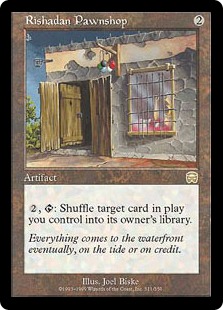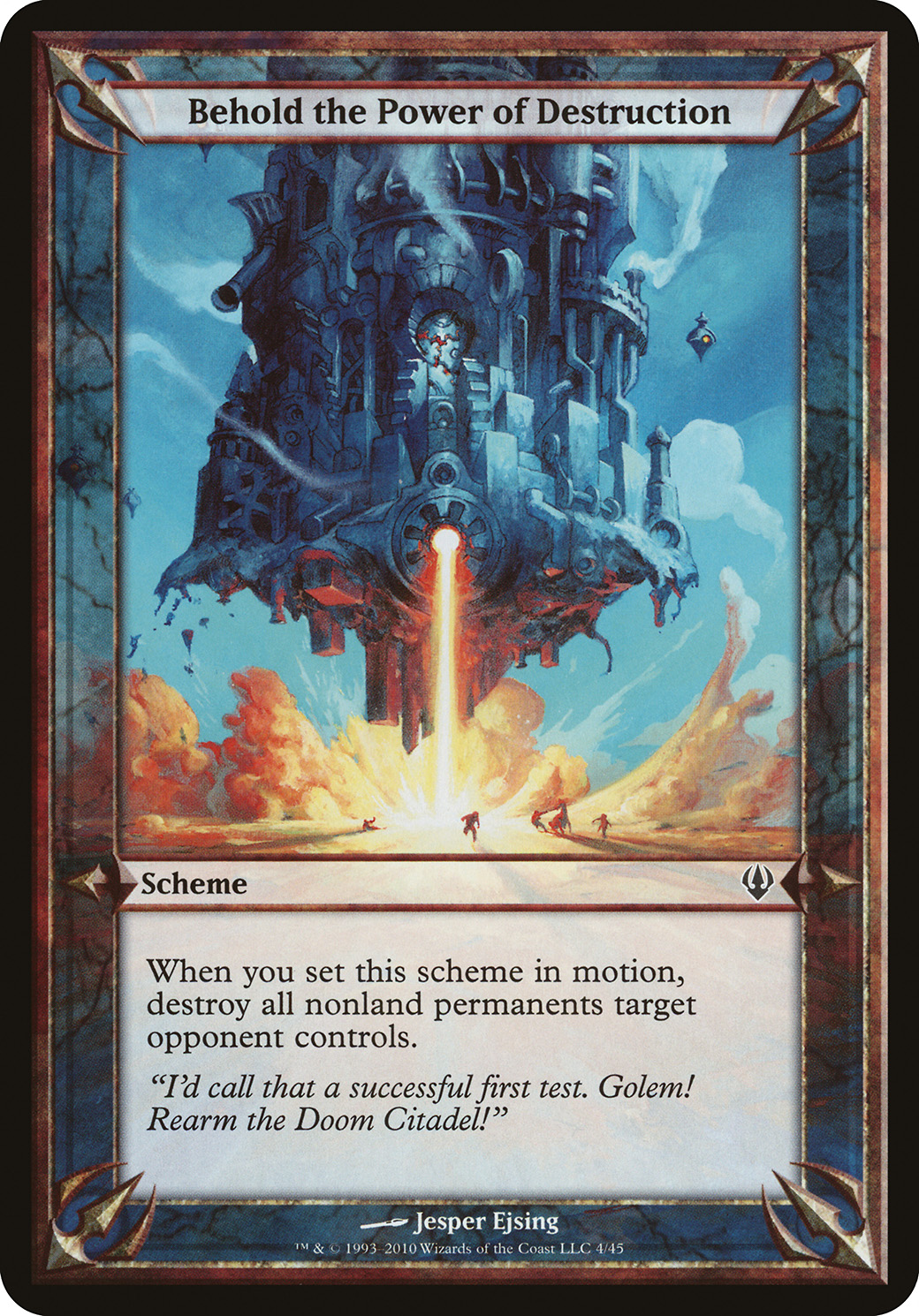Although the general public tends to perceive it as such, Magic players are not one big homogeneous group. From ten year olds to retirees and cutting through an ever-crowing cross-section of demographics, Magic continues to find new avenues of interest from all kinds of people. Still, while positive strides are being made to highlight that a slow but steady shift is occurring, the general conception out there is that Magic is still only the domain of white male twentysomethings. The most common reason for this is perception, and changing perception takes time to percolate.
The largest obstacle to broadening the idea of who plays this game is in no small part because white male players have historically been the main demographic for the game, and they are still the most visible core group playing at game stores, conventions, and in the tournament scene.
It’s sort of like how many people who live in low-crime environments have the bulk of their view on law enforcement shaped when their only interaction with them are when they’re pulled over for a speeding ticket. If that’s your only experience with them as a group, it skews both how you’ll feel about that organization as well the efficacy of their work. as it’s an incomplete picture.
The same thing goes for gaming. More women than men play digital games now, for example, but the public face of elecontronic gaming hasn’t yet shifted from the traditional viewpoint that video gaming only consists of first person shooters, sports games, and various shades of RPGs. The reasons for this vary, of course, but when viewed as a whole, from Farmville to Halo, there is just as much variety in the kinds of digital games as there are the people who play them.
Magic is no different. According to the most recent market research Wizards of the Coast has done, more than a third of Magic players now are women, which is fantastic. Sure, that does mean that it’s still a heavily male-dominated game, but 38% should not be easily discounted. Like the diversification of tabletop gaming in general, that number has risen significantly in the last five years, and, really, that uptick is far more important to the health and longevity of the game than any changes made to the cards or rules. Magic (and Wizards by extension) does a lot of very cool things to make it a game open to anyone, and adding even more inclusiveness to the game’s community will only make it better in the long run. Some people may not see these changes within gaming to be a positive thing. But they are wrong.
Mirroring its ever-growing audience, so too does Magic offer a slew of gameplay choices. The end goal may still be to win, but the methodology one uses to get there is something that varies from person to person and deck to deck. Whether you use five big stompy creatures or 30 little tokens running amok; a 20 point Fireball or 20 single instances of being munched on by a Hissing Iguanar, Magic either has a style of gameplay that will cater to your personal preferences…or it is about to. From sucking the life from your enemies to countering everything your opponents can throw at you, Magic has no shortage of options for you to bring low your enemy.
The longer you play, the more refined your stylistic tastes become. Most players do this to varying degrees, honing in on particular mechanics or tactics that they will go back to the well on more frequently than others. This isn’t a bad thing. Rather, those tendencies shape your preferred play style and over time give you an in-game identity, a Magic fingerprint.
For example, almost every deck I make has a tendency to have a lot of situational cards. I live in the domain of casual multiplayer settings, and I like having a variety of answers to odd situations. I’m also a very heavy Johnny player in how my decks behave, as I routinely do wonky things as a means to an end. The combination of these effects generally means that while I may not win a huge percentage of the time, I can also be a bit of a pain to go down. And if I have managed to build my Doom Engine, I can be quite difficult to stop. It’s become sort of a trademark behavior, and, incidentally, explains my Twitter name.
That having been said, just because you have a style that you adore doesn’t mean it will be universally loved by everyone else. In fact, a guarantee that not everyone will get the same entertainment value out of every approach to winning, and that can sometimes cause a bit of friction.
Watch players’ reactions the next time one person in a group insists on using a poison deck. Or when someone sets up defensively before laying down a world of painful Extort. Or if someone casts Armageddon for any reason other than to immediately win that turn.
For me, I like to steal and copy things. Call it a byproduct of learning to play in an age where creatures weren’t the scariest things around. I, like many, built spell-heavy decks, and so I would often offset my lack of giant scary creatures by using a Clone to copy yours. Or kill yours and use Animate Dead to resurrect it. I find it rather useful in group games – especially in Commander – to benefit from someone else bringing all the toys to the yard instead of me. It’s easier for me to focus on other things, and it’s also strategically useful by taking an enemy’s assets away from them.
However, just like infect or token swarms or countering everything into oblivion, not everyone on the receiving end of that appreciates it. Nevertheless, I’m unashamed of my play style and am willing to double down on my enjoyment of it by offering a card that partially ensures the old adage that if I can’t have it, no one can.
Today we have: Rishadan Pawnshop

Name: Rishadan Pawnshop
Edition: Mercadian Masques
Rarity: Rare
Focus: Spot Removal
Highlights: At first glance, Rishadan Pawnshop doesn’t seem like it would be all that useful in most decks, but it is deceptively more useful than its written text implies. This tends to be overlooked mainly because this artifact’s principle purpose is strictly as a reactionary effect to shuffle a nontoken permanent into its owner’s library. It doesn’t gain you life or draw you cards, nor does it do anything particularly splashy. You know, like an actual pawnshop.
Yet if you approach Rishadan Pawnshop for what it is – an insurance policy – then the card’s value starts to assert itself. Most people focus on the card’s activation restriction and what it can’t do rather than what you can. That you have to actually control the permanent to target it is a fair observation. Oblation this is not. Unfortunately, that fact is then logically extrapolated out to the belief that its only real purpose is when you’re stealing another player’s cards and want to ensure that they won’t get it back, be it an artifact, creature, or if you’re particularly mean, using it to ‘tuck’ someone’s borrowed Commander.
This is certainly advantageous to that end, but Rishadan Pawnshop is just as useful as a means to save your own cards. Even itself. Not every color is adept at bringing important cards back from the graveyard, and precious few cards interact with something in exile. Rishadan Pawnshop puts you in a unique position to shuffle something about to be removed back into your deck on the chances that it could be drawn or tutored for again later in the game. Plus, as a bonus, shuffling the card out of play could stifle another player’s death triggers. Sure, the odds aren’t high you’ll see that really important planeswalker or artifact again, but in most cases those odds are still higher than simply letting it be destroyed or exiled. But hey, that’s the gamble you take with a pawnshop.
What’s more, with a cheap casting cost and equally cheap activation, Rishadan can be cast and used at any stage at the game, making it both versatile and economical. Regardless of whether you use it on your own permanents in the hopes of seeing it again later, or the more conniving aspect of stealing and dispatching cards back into someone else’s deck, this is one pawnshop that can actually be beneficial to you in the long run.
Naturally, I’ll probably be using it for both. But that’s just my style.
Keep an eye out for us to be regularly featuring other more accessible-but-worth-it Commander cards going forward. In the meantime, we’ll keep the light on for you.
![]()
You can discuss this article over on our social media!
Do you have a particular Commander card to suggest for us to shine a future Spotlight on? You can send suggestions to ryan@cardboardrepublic.com

